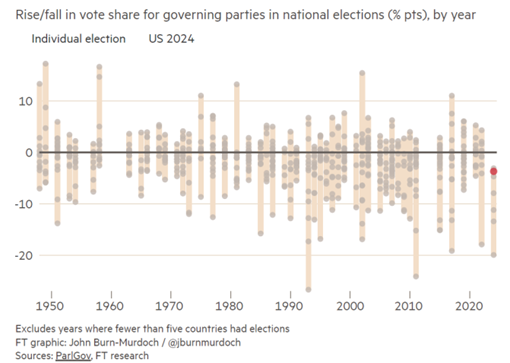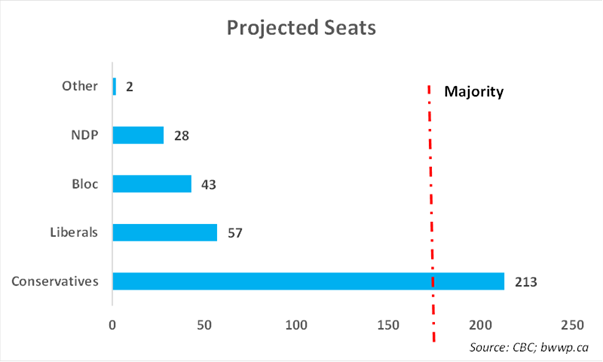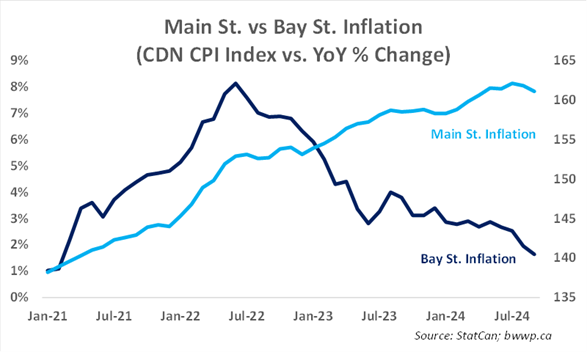Plato was Gaslighting Us
Today, we begin with the world’s tallest bird. No, we are not referring to Jeff Wellwood, but rather to Africa’s own – the ostrich. As many of our readers may know (or at least suspect), the phrase “don’t bury your head in the sand” comes from the Platonian proverb about an ostrich named Steve who, rather than fleeing from a menacing cheetah as the other ostriches in his wobble did, decided to bury his head in the sand in the hopes that the danger of the cheetah would be averted (note that we entirely made this last part up, but it is directionally accurate). It turns out that ostriches, in fact, do not bury their heads in the sand, but rather drop flat to the ground in hopes of camouflaging themselves from predators (note that Jeff does something similar when faced with danger), so the very use of the phrase – “don’t bury your head in the sand” – is based on a fallacy and should rather be – “don’t lie down and flatten yourself out”. We grant that the first phrase rolls off the tongue a bit better, but this may simply be because we are comfortable with it. So, the next time someone you know is seemingly ignoring bad news in the hopes that it will all just magically go away, try our new phrase out as it is more factually accurate, regardless of what Plato may have said.
Speaking of lying down and flattening yourself out, let’s talk about Canadian politics.
RIP U.S. Election
While they will be writing the epitaph of the 2024 U.S. Presidential Election for some time to come, in our view, there were some key “things” that drove President-Elect Donald Trump’s victory. Rather than try to elucidate all of them (we do not wish to step on too many third rails, as the general tone of this piece is somewhat “third-railian”), we would boil the key ones down to:
- Incumbency Bias: We will start with a fun fact – more people have voted in elections in 2024 than any other year in history. Okay, with that out of the way, let’s look at what we think is a truly astonishing chart and the comment:

We are looking at all of the elections that have taken place since 1950 globally. If a dot is above the zero line, it indicates that the incumbent party gained votes in the election (vs. the prior election cycle) and if it is below the line, it indicates the incumbent party lost votes. 2024 is the first year since this has been tracked that every single incumbent party lost vote share. In fact, if you look at the chart where the U.S. is marked off with a red dot, Harris’s share lost was actually quite mild in the context of what has been taking place worldwide.
- Inflation: The why of the above chart is quite simple – inflation. A good way of thinking about inflation is this (note, we are plagiarizing this from others as leveraging other people’s good points is a bedrock of good writing) – unemployment touches maybe 5-10% of the population, inflation touches everyone. Whether you are earning $50k/year or $500k/year, if you go to the grocery store or to the drug store or to a restaurant, you see and experience inflation (granted to different degrees, but you still experience it). We won’t get into what caused inflation and who is to blame, but the bottom line is that incumbents worldwide have been blamed for it.
- Time: Joe Biden stepped down as the Democratic candidate for President on July 21st, which was 106 days before Election Day. This compressed timeframe created an enormous challenge for Vice-President Harris. Further, by not stepping down earlier, President Biden all but guaranteed that Democrats would not be able to pick their preferred candidate through a proper primary process. Does this mean it would not have been Harris? Of course not, but it would at least have allowed for a democratic process in which the pluses and minuses of the potential candidates could have been presented to voters.
The Liberals are way Behind
At some point in the next 11-months, Canada will hold a Federal Election. According to the CBC, current polls have the Conservative Party receiving ~42% of the vote, the incumbent Liberal Party receiving ~23% of the vote, the NDP receiving ~19% of the vote, with remaining parties receiving the balance. This would translate approximately into the following seat breakdown in the next election:

In terms of percentages, the Conservative Party currently has a 92% chance of gaining a majority in the next election, while the incumbent Liberal party has an 8% chance. In other words, if the election were held today, it would almost certainly be a Conservative majority and potentially one of some size.
Bay Street vs. Main Street
As we note above, it is hard to shift the narratives that are overhanging incumbent parties worldwide. Further, as we have previously noted, while inflation has come down sharply from the peak levels in 2022, most people do not think of inflation as the percentage change in prices from a year ago (so called “Bay St. Inflation”), but rather as the fact that prices today are a lot higher than they were a few years ago (so called “Main St. Inflation”). Let’s look at a chart that captures this:

It is very difficult for an incumbent to run away from the above as the likelihood that prices come down in any significant way over the next year is extremely low. In fact, one could make the argument that we do not want prices to come down significantly as price declines (deflation) are generally associated with economic slowdowns (or worse), which is a little bit like cutting off your nose to spite your face (something ostriches are not known to do, by the way).
Harris Lost, but a Biden loss may have been much worse.
An easy refrain might be - changing ostriches as the Democrats did, made no real difference as Harris lost the popular vote by 1-2 points (votes are still being tallied) and Trump won 312 electoral votes (he needed 270). While the magnitude of the loss caught many by surprise, polls prior to Biden stepping down suggested that Trump had a 5–7-point lead nationally, while several states that were not considered swing states such as New Jersey and Virginia were very much within Trump’s reach. While polls have obviously been wrong over the past several cycles, they have tended to be wrong in Trump’s favor, so it is probably safe to assume that Biden’s defeat may have been considerably worse than that of Harris. In fact, it has come out in recent days that the Biden team’s own internal polling prior to Biden stepping down had Trump potentially winning 400+ electoral votes.
While we generally hate the art of – proving the negative – we would lean on it here to simply suggest that had Biden decided after the 2022 midterms not to run again and had the Democratic candidate - whether it was Harris or whomever else emerged from a competitive primary – had time to convince the electorate that they were not voting for the incumbent, it is not folly to suggest that the outcome of the election might have been different. After all – if Harris was able to narrow the loss from 400+ to what boiled down to a couple of percentage points in a few swing states (she lost WI by less than 1%, MI by less than 2% and PA by 2%) with only 100-days to run, imagine what two years might have borne out?
Trudeau’s Biden Moment?
Against this backdrop, according to Angus Reid, Justin Trudeau enjoys an approval rating amongst Canadians of ~30% (consider that before he stepped down, Joe Biden had an approval rating of ~40%). Absent some sharp reversal in the economic data that somehow shakes the same malaise that has been impacting incumbent parties worldwide, we would suggest that it is going to be very challenging to raise this approval rating. Rather, we would suggest the following:
- Announce an open leadership race: While it may be difficult to shake the “incumbent label”, the Liberals best chance of doing so is to push for an open race in which several candidates can put their best foot forward. And while we have some ideas as to who we would like to see as the Liberal candidate for PM (hint: it rhymes with Flark Darney), we think any efforts to try to shift the narrative would probably have some value.
- Present a budget plan that likely brings down the government: As we have written, Canada’s economy has generally been on the wrong path for some time. We would argue that now is the time for fresh new ideas that may not be popular with certain constituencies that have been propping up the minority government for the past few years. A bold budget that addresses the myriad of challenges facing the Canadian economy, especially with Trump set for four more years in power, seems like a must to us.
- Use this budget plan as the election platform: And while this bold budget would likely bring down the government, it would provide an election platform for the Liberals to run on – one that potentially shifts the narrative from the malaise of the past few years.
Bottom Line
We should add that we do not expect the above to happen. Prime Minister Trudeau seems intent on running for reelection; however, based on polls and the general backdrop for incumbents worldwide, we believe this is a mistake. The U.S. election provides a template of sorts for Canada and the Liberal Party. Running against the current backdrop of high “Main Street inflation” has proven to be a near impossible task for incumbents worldwide and the Liberal Party of Canada seems destined for the same fate absent a major pivot. While Joe Biden’s withdrawal from the race did not ultimately shift the outcome, we would argue that there is strong evidence that it would have been far worse for the Democrats had Biden stayed in the race. Further, had Biden stepped away sooner, it may have further increased the odds that whoever was the candidate could have more effectively pivoted away from the incumbent label that has plagued so many leaders in 2024.
As for markets, while it is early days, the S&P/TSX has lagged the S&P 500 by ~100 basis points since the Election. The last time both Trudeau and Trump were in power simultaneously (effectively November of 2016 through October of 2020), the TSX underperformed the S&P 500 by ~44% (note that if we strip out the COVID-effect, the disparity is even greater). While the backdrop has changed from the 2016-2020 period, as we have stressed in this piece and previously, Canada needs a major economic pivot that adjusts both to and beyond the Trump era.
